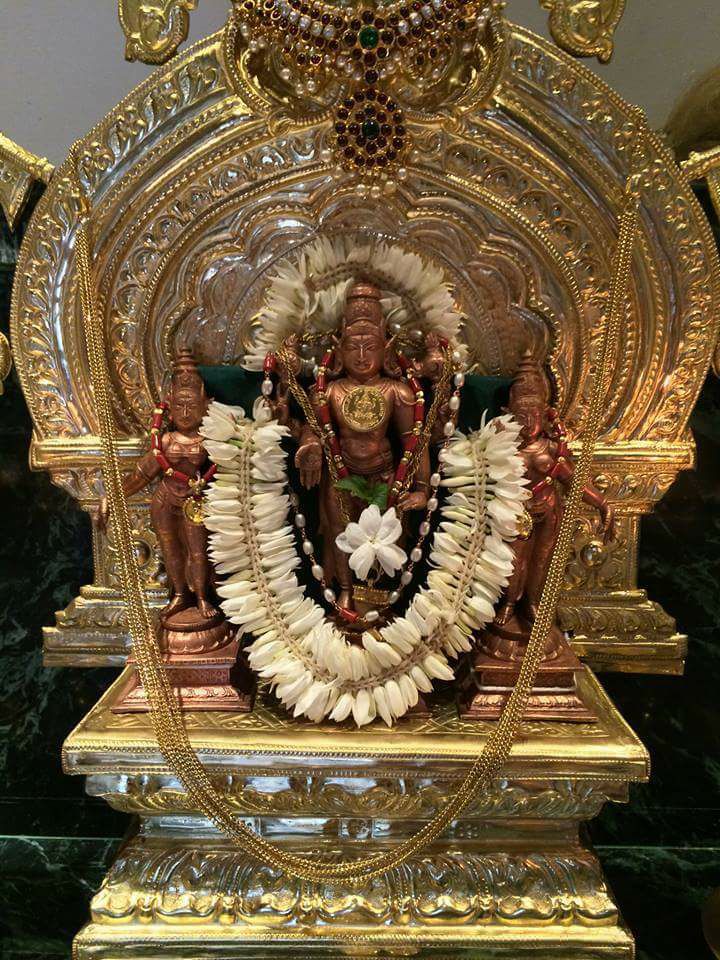Gita : Ch-13. Slo-8 to 12. Slokams and combined - Discussion-9.
04/04/2017
Srimad Bhagavad-Gita :
Chapter-13.( ( Kshetra-kshetrajna-vibhaga-yogam )
Slokam-s. 8 to 12.
(8)
amanitvamadambhitvam ahimsa kshantirarjavam,
acaryopasanam saucam sthairyamatmavinigrahah.
amanitvam = humility;
adambhitvam = pridelessness;
ahimsa = nonviolence;
kshantih = tolerance;
arjavam = simplicity;
acarya-upasanam = approaching a bona fide spiritual master;
saucam = cleanliness;
sthairyam = steadfastness;
atma-vinigrahah = control;
(9)
indriyartheshu vairagyam anahankara eva ca,
janmamrtyujaravyadhiduhkhadoshanudarsanam.
indriya-artheshu = in the matter of the senses;
vairagyam = enunciation;
anahankarah = being without false egoism;
eva = certainly;
ca = also;
janma = birth;
mrtyu = death;
jara = old age;
vyadhi = disease;
duhkha = distress;
dosha = fault;
anudarsanam = observing;
(10).
asaktiranabhishvangah putradaragrahadishu,
nityam ca sama-cittatvam ishtanishtopapattishu.
asaktih = without attachment;
anabhishvangah = without association;
putra = son;
dara = wife;
graha-adishu = home, etc.;
nityam ca = also;
sama-cittatvam = equilibrium;
ishta = desirable;
anishtah = undesirable;
upapattishu = having obtained;
(11)
mayi cananyayogena bhaktiravyabhicarini,
viviktadesasevitvam aratirjanasamsadi.
mayi = unto Me;
ca = also;
ananya-yogena = by devotional service;
bhaktih = devotion;
avyabhicarini = constant, unalloyed;
vivikta = solitary;
desa = place;
sevitvam = aspiring;
aratih = without attachment;
jana = people in general;
samsadi = mass;
(12)
adhyatmajnananityatvah tattvajnanarthadarsanam,
etat jnanamiti proktam ajnanam yadatonyatha.
adhyatma = pertaining to the self;
jnana = knowledge;
nityatvam = eternity;
tattva-jnana = knowledge of the truth;
artha = the object;
darsanam = philosophy;
etat = all this;
jnanam = knowledge;
iti = thus;
proktam = declared;
ajnanam = ignorance;
yat = that which;
atah = from this;
anyatha = others.
Discussion - 9. 20 virtues :
1.
To have unwavering and unalloyed exclusive loving devotion to the Supreme Lord Krishna and to worship His transcendental form both externally in the temple and internally within the heart. Fondness for living in secluded and holy places and avoidance of worldly minded people uninterested in spiritual matters with no attraction to the Supreme Lord. Because association with saintly persons is essential for spiritual development it is indispensable for one seeking to advance their spiritual life.
2.
There is an ancient dialogue between the sage Cyavana instructing King Nahusa where he tells him: One should associate with saintly persons. One should hear instructions from saintly persons. One should indulge in discussions with saintly persons and make friendships only with them; but never with the wicked who should be avoided completely. Association with saintly persons is the medicine to remove the disease of materialism but association with the wicked is just like poison.
3.
Finally constant devotion to atma tattva or knowledge of the soul. That true knowledge regarding the soul that is entirely different from the physical body. Observing the Supreme Lord everywhere in everything as the means to surmount ignorance and gain endless bliss from liberation by His eternal communion. The 20 attributes declared in these verses are known to be knowledge and are the wisdom by which the Supreme Ultimate Truth can be realised. Whatever is contrary to these 20 attributes is known as ignorance and is destructive of wisdom leading to the Supreme Ultimate Truth and should by all means in every situation be avoided.
To be continued ...





Comments
Post a Comment